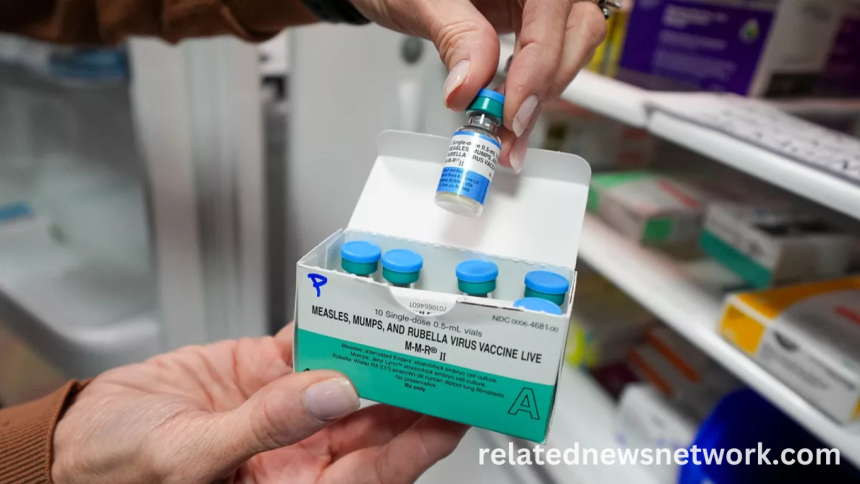Measles, once a common childhood illness, is now preventable thanks to widespread vaccination programs. However, despite these advancements, the disease still poses a significant risk, especially in areas with low vaccination rates. Measles is highly contagious and can lead to serious complications that may have long-term consequences for both children and adults. This article delves into the lasting effects of measles on health, exploring how the disease can impact individuals across different age groups.
The Immediate Complications of Measles
Before examining the long-term effects, it’s important to understand the immediate complications that can arise from a measles infection. Measles typically starts with a high fever, cough, runny nose, and a characteristic rash. While most individuals recover within two to three weeks, others may experience more severe health issues, including:
Pneumonia: This is one of the most common complications, especially in children, leading to difficulty breathing and, in some cases, hospitalization.
Encephalitis: Inflammation of the brain, which can cause seizures, hearing loss, and in rare cases, death.
Ear Infections: Measles can lead to middle ear infections, causing pain and potentially leading to long-term hearing problems.
While these complications can be life-threatening in the short term, they are only the beginning of the potential impact of measles.
Subacute Sclerosing Panencephalitis (SSPE)
One of the most devastating long-term effects of measles is the development of Subacute Sclerosing Panencephalitis (SSPE), a rare but fatal condition that can occur several years after a measles infection. SSPE affects the brain, causing progressive neurological deterioration, cognitive decline, seizures, and eventually, death. SSPE is irreversible, and the risk increases if the child contracts measles at a young age.
Chronic Immune System Suppression
Measles has a profound effect on the immune system. During and after the infection, the virus can weaken the immune system, making children more vulnerable to other infections for months or even years. This phenomenon, known as immune amnesia, means that the body forgets how to fight off infections it has previously encountered, leading to a higher susceptibility to diseases like pneumonia, diarrhea, and even more severe complications from other viruses.
Vision Impairment or Blindness
While rare, some children may develop vision problems or even permanent blindness as a result of complications from measles. The virus can cause damage to the eyes or lead to other infections that affect vision. This is particularly concerning in regions with inadequate healthcare access, where timely treatment is not always available.
Growth and Developmental Delays
In severe cases, children who experience long-term complications from measles may face developmental delays. The virus can impair neurological development, leading to issues with motor skills, speech, and cognitive abilities. These developmental delays can affect a child’s ability to perform in school or interact socially, which can have a lasting impact on their quality of life.
Read More : Babies from Bone Marrow
Long-Term Health Effects in Adults
While measles is primarily considered a childhood illness, it can also have significant long-term effects on adults who contract the virus, particularly those who are unvaccinated or who have weakened immune systems.
Post-Infectious Encephalitis
Though rare, adults who suffer from measles-related encephalitis may face long-term neurological issues, including memory problems, difficulty concentrating, and mood disturbances. Post-infectious encephalitis can also result in permanent brain damage, leading to cognitive impairments and sometimes a reduced ability to carry out everyday tasks.
Chronic Respiratory Issues
Adults who develop pneumonia as a complication of measles may experience lingering respiratory problems, such as chronic cough, shortness of breath, or even chronic obstructive pulmonary disease (COPD). These long-term lung issues can reduce overall quality of life and require ongoing medical treatment.
Increased Risk of Other Infections
Similar to children, adults who recover from measles may experience a weakened immune system. This leaves them at greater risk of other viral and bacterial infections, including respiratory infections, gastrointestinal diseases, and other opportunistic infections. These repeated health challenges can lead to long-term health issues that require careful management.
Impact on Pregnancy and Reproductive Health
For women, contracting measles during pregnancy can lead to serious complications. Measles can cause miscarriage, premature birth, or low birth weight in newborns. Furthermore, the long-term reproductive health consequences can include infertility, though this is more common in women who contract rubella, a related virus, during pregnancy.
Frequently Asked Questions
Can measles cause permanent brain damage?
Yes, measles can cause encephalitis, which may lead to permanent brain damage, especially in severe or untreated cases.
What is Subacute Sclerosing Panencephalitis (SSPE)?
SSPE is a rare, fatal brain disorder that can occur years after measles, especially in children infected at a young age.
How does measles affect the immune system long-term?
Measles weakens the immune system by erasing immune memory, making the body vulnerable to other infections for years.
Can adults experience long-term effects from measles?
Yes, adults may suffer from chronic respiratory issues, neurological complications, and increased susceptibility to other illnesses.
Is measles-related hearing loss permanent?
In some cases, measles can cause permanent hearing loss due to damage from ear infections or encephalitis.
How does measles affect children’s development?
Severe measles infections can result in developmental delays, cognitive impairment, and issues with speech or motor skills.
Does measles during pregnancy affect the baby?
Yes, measles can cause miscarriage, premature birth, or low birth weight if contracted during pregnancy.
Can measles be completely prevented?
Yes, with full vaccination using the MMR (measles, mumps, rubella) vaccine, measles is almost entirely preventable.
Conclusion
Measles is more than a short-term illness—it can leave lifelong effects on the brain, immune system, and development. Both children and adults face serious risks if not vaccinated. Complications like SSPE, immune suppression, and neurological damage highlight the importance of prevention. Vaccination remains the most powerful defense against measles and its devastating long-term consequences. Protecting communities through immunization is critical for global health and future generations.









